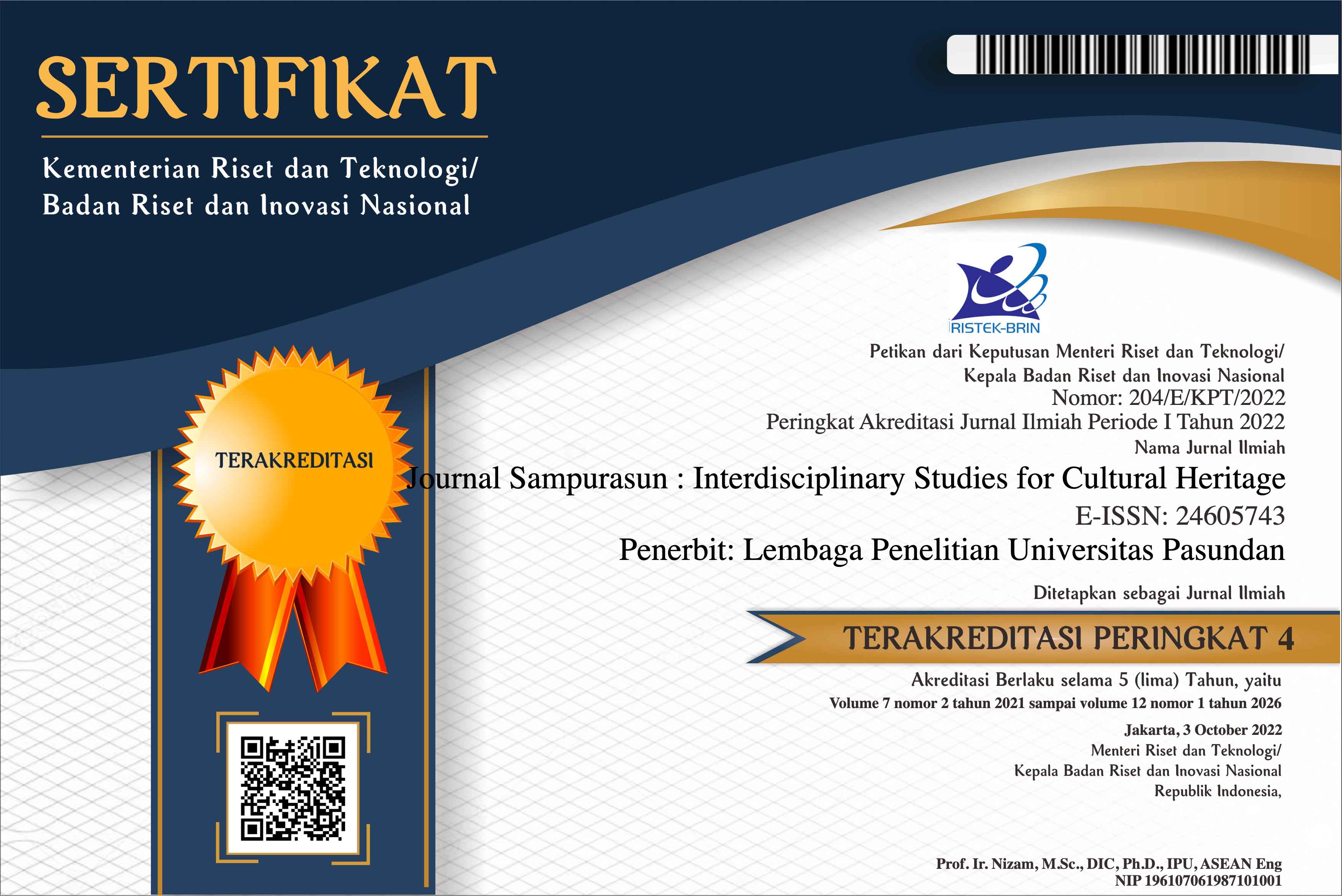THE SPIRITUAL BIOPSYCHOSOCIALS IN SOCIAL PROTECTION ON JUVENILE DELINQUENCY
DOI:
https://doi.org/10.23969/sampurasun.v6i2.3218Keywords:
Biopsychosocial, Social Protection, Juvenile delinquency.Abstract
The long-term goal of this research is to develop a method of dealing with social problems on juvenile delinquency with a Biopsychosocial - spiritual method as a way to restore the functioning of children affected by legal issues that are being fostered in Class II Sukamiskin Prison. Social protection for juvenile deliquency through various forms of service with an emphasis on aspects of spiritual biopsychosocial is in the best interest of juvenile deliquency in terms of protection in the form of social assistance, social insurance, and empowerment. Even though the child is in custody, but they are also entitled to various kinds of protection and guarantees like other normal children, such as access to education, health, spiritual services, socialization and participating in various other skills and extracurricular activities. All aspects of social protection must support a child's biopsychosocial spiritual needs. Sukamiskin's class II rehabilitation institution which has the authority in the delivery of services to juvenile deliquency must also cooperate with other institutions in providing social protection efforts. The specific target of this research is to provide the best social service efforts for children in order to fulfill children's rights.
Downloads
References
Adi, R. I. (2015). Kesejahteraan Sosial (Pekerjaan Sosial, Pembangunan Sosial, dan Kajian Pembangunan) Suatu Pengantar. Jakarta: PT Rajagrafindo Persada.
Aipasa, M. (2011). Social Case Work. Koperasi Mahasiswa STKS Bandung. Bandung.
Ali, M., & Ansori, M. (2014). Psikologi Remaja Perkembangan Peserta Didik. Jakarta: PT Bumi Askara.
Alwasilah, A. C. (2012). Pokoknya Kualitatif . Bandung: PT Dunia Pustaka Jaya .
Aprilianda, N. (2017). Sistem Peradilan Pidana Indonesia: Teori dan Praktik. Malang: Universitas Brawijaya Press (UB Press).
creswell, J. W. (2014). Research Design: Pendekatan Metode Kualitatif, Kuantitatif, dan Campuran. Yogyakarta: Pustaka Pelajar.
(2016). Research Design: Pendekatan Metode Kualitatif, Kuantitatif, dan Campuran. Yogyakarta: Pustaka Pelajar.
Fahrudin, A. (2014). Pengantar Kesejahteraan Sosial . Bandung: PT Refika Aditama.
Gerungan. (2009). Psikologi Sosial. Bandung: PT Refika Aditama.
Gultom, M. (2014). Perlindungan Hukum terhadap Anak dalam Sistem Peradilan Pidana Anak di Indonesia. Bandung: PT Refika Aditama.
Hanurawan, F. (2010). Psikologi Sosial Suatu Pengantar. Bandung: PT Remaja Rosadakarya Offset.
Hude, M. D. (2008). Emosi (Penjelajahan Religio-Psikologis tentang Emosi Manusia di dalam Al-Qur'an). Jakarta: Penerbit Erlangga.
Huraerah, A. (2006). Kekerasan Terhadap Anak. Bandung: Penerbit Nuansa.
Huraerah, A. (2011). Pengorganisasian dan Pengembangan Masyarakat, Model dan Strategi Pembangunan Berbasis Kerakyatan. Bandung: Humaniara.
Hurlock, E. B. (2005). Psikologi Perkembangan Jilid 2. Jakarta: Erlangga.
Iskandar, J. (2013). Beberapa Keahlian Penting dalam Pekerjaan Sosial. Bandung: Puspaga Bandung.
Kartono, K. (2017). Patologi Sosial 2 (Kenakalan Remaja). Jakarta: PT Rajagrafindo Persada.
Lubis, N. L. (2016). Depresi Tinjauan Psikologis. Jakarta: K E N C A N A.
Morgan, N. (2014). Panduan Mengatasi Stres Bagi Remaja . Jakarta: Penerbit Gemilang.
Downloads
Published
Issue
Section
License
Copyright Notice
Authors should not withdraw their submitted papers because the withdrawal wastes voluntary works devoted by an associate editor and reviewers. But, we accept the withdrawal of a submitted paper if authors have unavoidable reasons. In the event that a manuscript is to be withdrawn from submission to Sampurasun Journal, a letter must be sent to the editorial office requesting withdrawal by e-mail (sampurasunjournal@unpas.ac.id) with its scanned PDF file, before the notification of acceptance for publication.
The withdraw request letter must include the following information. Paper ID, Paper title, Authors names, Reason why the paper must be withdrawn, and Date and signatures of all the authors (or signature of the contact author).
If only the contact author signs the letter, he/she must obtain the agreement of the withdrawal from all the other authors and the letter must include the description that all the other authors agreed the withdrawal. The journal will not withdraw a manuscript from peer review until such a letter has been received. Authors must not assume their manuscript has been withdrawn until they have received appropriate notification from the editorial office. Withdrawal of a manuscript subsequent to acceptance for publication will only be granted in the most exceptional of circumstances.
After the paper is accepted for publication, the withdrawal is not permitted in principle. The authors must always pay the charge even if the withdrawal is permitted. Any request of withdrawal that does not follow the above procedure is treated as invalid. If illegal submission, e.g., plagiarized or duplicate submission, is found for a paper, the withdrawal of the paper will never be permitted and the authors will be punished based on the rule. It is not acceptable practice to withdraw a manuscript in the event of acceptance at another journal. This constitutes dual submission. The editorial office of the other journal will be notified of your actions. In such circumstances Sampurasun ISCH may chose to impose appropriate punitive action subject.
Withdrawal Penalty
Author is not allowed to withdraw submitted manuscripts, because the withdrawal is waste of valuable resources that editors and referees spent a great deal of time processing submitted manuscript, money and works invested by the publisher. If author still requests withdrawal of his/her manuscript when the manuscript is still in the peer-reviewing process, author will be punished with paying $200 per manuscript, as withdrawal penalty to the publisher. However, it is unethical to withdraw a submitted manuscript from one journal if accepted by another journal. The withdrawal of manuscript after the manuscript is accepted for publication, author will be punished by paying US$500 per manuscript. Withdrawal of manuscript is only allowed after withdrawal penalty has been fully paid to the Publisher. If author don't agree to pay the penalty, the author and his/her affiliation will be blacklisted for publication in this journal. Even, his/her previously published articles will be removed from our online system.


















